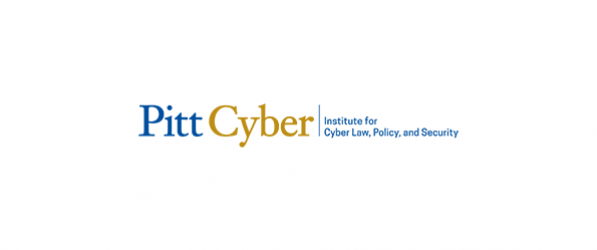On April 4, 2024, the University of Pittsburgh Institute for Cyber Law, Policy, and Security (Pitt Cyber), Dick Thornburgh Forum for Law & Public Policy and Institute of Politics convened a discussion of disinformation in the digital age as a part of the ‘Protecting Democracy and Securing Our Elections’ event series. The event featured Barbara McQuade, former US Attorney for the Eastern District of Michigan, legal analyst for NBC News and MSNBC, and author of "Attack from Within: How Disinformation is Sabotaging America," in conversation with Mark Nordenberg, Chancellor Emeritus of the University of Pittsburgh, Chair of Pitt’s Institute of Politics, and Director of the Dick Thornburgh Forum. David Hickton, Founding Director of Pitt Cyber, welcomed the audience and praised the leadership demonstrated by both McQuade and Nordenberg during their careers.
The conversation explored the far-reaching consequences of digital disinformation for democracy and the rule of law. McQuade emphasized the urgent need for a national conversation about the importance of truth, emphasizing the civic dangers associated with prioritizing political allegiance over factual accuracy. Noting the evolving threats to national security over her career, McQuade asserted that today, one of the greatest threats to our national security is the proliferation of disinformation.
The discussion distinguished between intentional deception (disinformation) and unwitting dissemination of false information (misinformation). Although disinformation is a longstanding phenomenon, McQuade underscored that the internet has supercharged its reach and spread. The internet also enables anonymity in a way that damages the public discourse. Whether through exploiting divisive partisan issues, utilizing ‘either or’ fallacies, or offering directly contradicting statements that gradually devalue the concept of truth, disinformation tactics are often primitive, but effective.
The question of how to effectively reign in disinformation in a society that promotes freedom of speech remains a challenge. McQuade advocated for meaningful oversight of social media platforms, calling for updates to outdated legislation such as Section 230. She also stressed the importance of promoting media literacy among citizens and bolstering efforts to ensure free and fair elections. Acknowledging the complexity of a government led response, she acknowledged that political and legal challenges have deterred the Executive branch from addressing disinformation. Increasingly, responsibility has shifted to Secretaries of State and civic organizations. Nordenberg echoed these concerns and stressed the need to ensure the physical safety of public officials amidst increasing threats.
Audience engagement further enriched the dialogue, with questions touching on topics ranging from enforcement of gag orders against President Trump to accountability for the January 6 insurrection. When pressed by Nordenberg about declining confidence in the nonpartisan nature of judges’ decisions, McQuade expressed confidence that, while all judges bring an existing world view, courts are trying to get these decisions right. She expressed especial concern that when people with power attempt to undermine judges’ authority, as former President Trump has done, it weakens the rule of law.
McQuade’s writing and remarks stressed that the battle against disinformation is not merely a political or legal issue—it is a moral imperative. Preserving the integrity of our democracy requires vigilance, collective action, and an unwavering commitment to truth – even when it does not bolster our political preferences. In a world increasingly beset by falsehoods and deception, the stakes could not be higher. It is up to each of us to rise to the challenge and safeguard the foundations of our democracy.

